Notebook
-
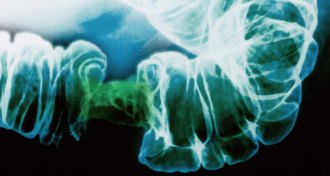 Health & Medicine
Health & MedicineColorectal cancer is on the rise among younger adults
Colorectal cancer rates in the United States have increased in people younger than 50.
-
 Astronomy
AstronomyBlack hole enjoys fantastically long stellar feast
A supermassive black hole about 1.8 billion light-years away has been gorging on the same star for a record-breaking decade.
-
 Animals
AnimalsToo many stinkbugs spoil the wine
Stinkbugs can ruin wine if enough are accidentally processed alive with the grapes. Three or fewer stinkbugs per grape cluster don’t have a noticeable effect on red wine.
-
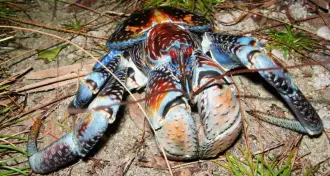 Animals
AnimalsCoconut crab pinches like a lion, eats like a dumpster diver
Coconut crabs use their surprisingly powerful claw for more than cracking coconuts.
By Susan Milius -
 Computing
ComputingSpeech recognition has come a long way in 50 years
Early versions of computer speech recognition relied on word sounds. Now, they add pattern recognition and a lot of statistics.
-
 Health & Medicine
Health & MedicineFor Ebola patients, a few signs mean treatment’s needed — stat
A few criteria may help identify Ebola patients who need the most care.
-
 Physics
PhysicsSound waves could take a tsunami down a few notches
A tsunami’s ferocious force could be taken down a few notches with a pair of counter waves.
-
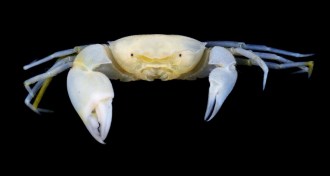 Animals
AnimalsCoral reef crab named after Harry Potter characters
Bizarre rubble-dwelling crab named after critter collector and Harry Potter characters.
-
 Materials Science
Materials ScienceGermanium computer chips gain ground on silicon — again
Having pushed silicon to its limit, engineers are turning back to germanium.
-
 Health & Medicine
Health & MedicineWeekend warriors put up a fight against death
Weekend warriors shove all their weekly activity into just one or two days, and it’s still enough to reduce mortality risk.
-
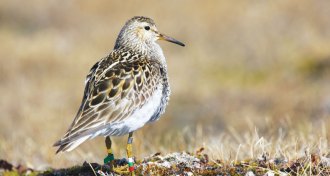 Animals
AnimalsPectoral sandpipers go the distance, and then some
Even after a long migration, male pectoral sandpipers keep flying, adding 3,000 extra kilometers on quest for mates.
-
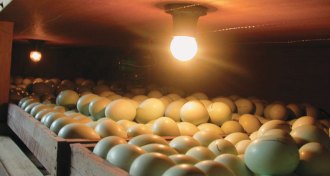 Animals
AnimalsFor calmer chickens, bathe eggs in light
Shining light on incubating eggs leads to calmer adult chickens, a study suggests.